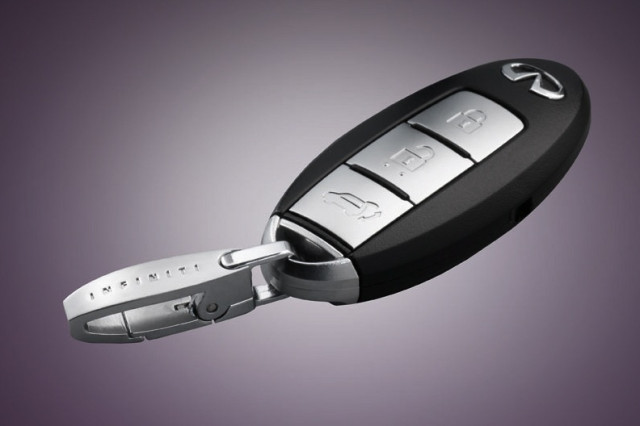

The Infiniti Q50 is a car with a great memory for names. And faces, and seat positions, and cabin temperatures and routes home…even whether the driver prefers an ABC or a QWERTY keyboard. Depending on model, Infiniti’s all-new premium vehicle will not just welcome the driver aboard by name, it can even display photographs of friends and family on one of the car’s dual touch-screens.
On sale later this year and priced from $36,700, the Infiniti Q50 takes the idea of a car with a memory to a whole new level in the premium mid-sized class. Thanks to 96 selectable settings across 10 functions, possible permutations for personalisation exceed billions, allowing for optimal syncing of car and driver based on the driver’s preferences.
The Infiniti Q50 can remember the personal settings for up to four people – three registered users and one guest – covering the areas of life on board, dynamic performance and safety technology.
The concept behind this bespoke digital solution is called “My car knows me.” And it is just as simple to use as it sounds, with the car doing all the hard work and the few controls that do exist being entirely intuitive to use.
Central to “My car knows me” is Infiniti’s advanced intelligent i-Key. Each of the two i-Keys supplied with every Q50 stores personal settings for two different drivers. The information is saved automatically and can easily be updated, or deleted, on the touch screens. Tailoring the personal profiles extends to a facility to load up to 16 photographs.
While memory functions vary between countries and Q50 models, engines and transmissions, a constant ingredient is the new Infiniti Drive Mode Selector, fitted to every model. Operated by a switch on the center console, the selector offers performance choices that include Standard, Sport, Eco, Snow (automatic only) and Personal.
Depending on country and model, Personal is the custom setting where a driver can choose his or her ideal performance feel, not just engine and transmission changes but also steering weight and response type on vehicles equipped with Infiniti’s steer-by-wire Direct Adaptive Steering system.
The Infiniti Q50 can also remember each driver’s preferences for the host of hi-tech technologies working away behind the scenes to enhance the drive and keep the car out of trouble. Where these systems offer control choices – ranging, for example, from a simple on/off to the level of electronic intervention required – the settings are stored and automatically engaged whenever that driver is behind the wheel.
This guarantees that, whoever is driving, the car’s electronic systems – many of which form part of the Q50’s innovative Safety Shield – will always be perfectly set for that driver without the need to press buttons or scroll through menus.
The considerable extra peace of mind this facility ensures is especially valuable given that the Safety Shield is more complete than ever in the Q50. Features include the world-first Predictive Forward Collision Warning which uses some of the most advanced sensor technology yet developed to react to the speed/distance not just of the car in front – but also the car in front of that.
Other systems, many of which have user preferences so they can be precisely tailored to driver and journey, include (depending on model and country) Back-up Collision Intervention, Intelligent Brake Assist Plus, Lateral Stability Enhancement, Active Trace Control, Intelligent Cruise Control, Distance Control Assist, High Beam Assistant and Blind Spot Intervention and Warning, as well as Active Lane Control, another world-first system that uses Direct Adaptive Steering (where fitted) to “magnetize” the car to the centre of its lane on motorways.
Life on board offers even more personalisation options – all of which the Q50 will recognise as that driver’s every time he or she gets behind the wheel. Depending on model, favoured driving position (seats, steering column, exterior mirrors), climate control, navigation routes and options, and preferences for the Infiniti InTouch™ communication, entertainment and information functions can all be set and stored. Screen displays, language, colours, photographs and shortcuts can be chosen, too – the system will even remember whether you prefer l/100km or mpg, Fahrenheit or Celsius and an analogue or digital clock.
